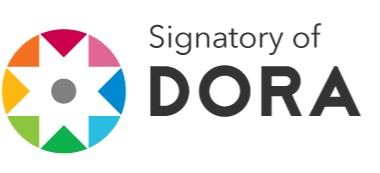Ethics and quality guidelines
1. EDITORIAL MANAGEMENT AND PERSONAL DATA PROCESSING
RCA seeks to maximize the dissemination and impact of research in the agricultural sciences, contributing to sustainable development and food security. To this end, it employs transparent and objective procedures for the selection, evaluation, and publication of its content and works, and constantly works to increase its visibility through inclusion in indexing systems and the use of information technologies.
Personal information requested during the editorial process will be used exclusively for the purposes of the journal and will not be shared with third parties.
2. CONFLICT OF INTEREST
RCA requires that all participants in the editorial process (authors, reviewers, and editors) declare any potential conflict of interest that could influence the objectivity of their work. This includes, but is not limited to, financial relationships, consulting contracts, intellectual property interests, or close personal or institutional relationships with the parties involved.
3. CODE OF ETHICAL CONDUCT
In its commitment to integrity and transparency, the Revista Ciencias Agropecuarias (RCA) of the Universidad de Cundinamarca bases its editorial policy on the highest international standards. Therefore, the journal adheres to the Code of Conduct of the Committee on Publication Ethics (COPE) and uses its flowcharts to manage cases of misconduct. As a signatory to the San Francisco Declaration on Research Assessment (DORA), it is committed to evaluating research on its own merits.
a) Responsibilities of the Editorial Team
• Publication Decision: The Editors are ultimately responsible for deciding which articles are published, basing their decision exclusively on the work's scientific merit, originality, clarity, and relevance, without discrimination of any kind.
• Confidentiality: The Editorial Team will not disclose information about received manuscripts to anyone not directly involved in the evaluation and publication process.
• Impartiality: Unpublished materials disclosed in a submitted manuscript will not be used in the editors' own research without the express written consent of the author. Editors will recuse themselves from managing manuscripts in which they have conflicts of interest.
b) Responsibilities of Peer Reviewers
• Contribution: Reviewers assist the Editorial Team in making decisions and help authors improve the quality of their manuscripts through constructive and objective critique.
• Diligence and Confidentiality: A reviewer who feels unqualified to evaluate a work or who cannot meet the established deadlines must notify the editor. Manuscripts received for review must be treated as confidential documents.
• Objectivity: Reviews shall be conducted objectively, and comments must be substantiated with clear arguments.
• Alertness to Sources: Reviewers must identify relevant works that the authors have not cited.
c) Author Responsibilities
• Authorship: Only those who have made a significant intellectual contribution to the work should be listed as authors. The corresponding author ensures that all co-authors have approved the final version of the manuscript.
• Copyright: Authors who publish in RCA retain the moral rights to their work and agree to grant publication rights to the Universidad de Cundinamarca under the Creative Commons Attribution-NonCommercial-NoDerivatives (CC BY-NC-ND) license.
• Data Access: Authors may be asked to provide the raw data from their study for editorial review and should be prepared to make it publicly accessible if possible.
• Originality and Plagiarism: Authors must ensure that their work is entirely original and that all sources used have been properly cited and referenced.
• Research Ethics: If the research involved the use of animals, compliance with animal welfare regulations and corresponding ethical protocols must be declared. If it involved human subjects (e.g., in socioeconomic or rural extension studies), information on informed consent must be included.
• Significant Errors: When an author discovers a serious error in their own published work, it is their obligation to promptly notify the journal editors and cooperate in the article's correction or retraction.
4. USE OF ARTIFICIAL INTELLIGENCE (AI)
RCA permits the use of AI tools to improve the writing and readability of the text. However, authors must declare their use in the manuscript and are fully responsible for the content, including its originality and accuracy, as AI cannot be considered an author.
5. MODIFICATIONS AND CORRECTIONS TO PUBLISHED ARTICLES
RCA is committed to the integrity of the academic record. Amendments to articles already published are handled as follows, adhering to COPE guidelines:
• Errata: To correct minor, unintentional errors detected after publication (e.g., typographical errors in names or affiliations) that do not affect the validity of the results.
• Corrections: For significant errors that compromise the interpretation of the results. A correction notice linked to the original article will be published.
• Retractions: In cases of scientific misconduct (data fabrication, plagiarism) or serious errors that invalidate the conclusions, the article will be retracted. A retraction notice will be published, and the original article will be marked as "Retracted."
• Removals: An article will only be considered for removal in exceptional circumstances, such as by court order or if the content poses a serious risk to public health.






